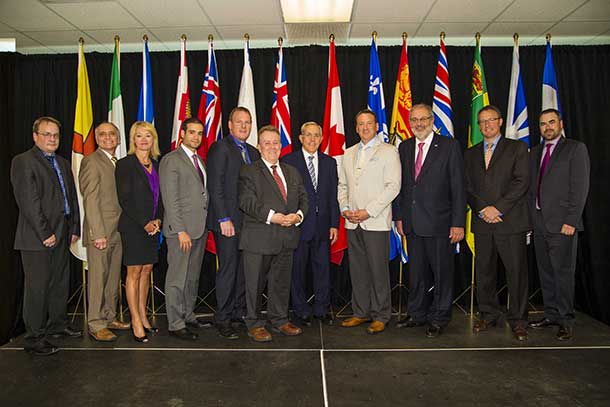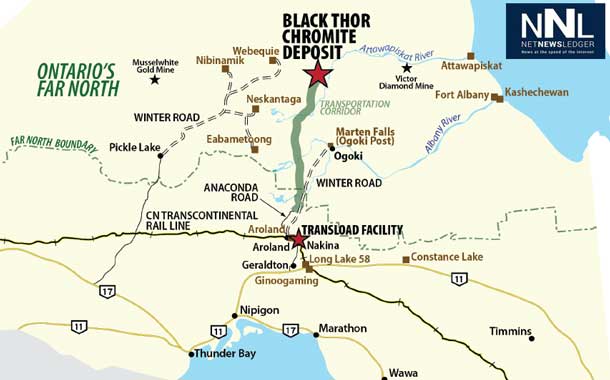
SUDBURY – MINING – The Mining Association of Canada (MAC) and the Prospectors & Developers Association of Canada (PDAC) applaud the joint announcement made by Canada’s Mines Ministers lending their support to enhance the transparency of mining sector payments to governments. The statement was issued on the last day of the 2014 Energy and Mines Ministers Conference, held in Sudbury, Ontario.
“We welcome the broad support that federal and provincial Mines Ministers have given to improving the transparency of mining revenues paid to governments at home and abroad, and we look forward to working with all levels of government on this important initiative,” said Pierre Gratton, President and CEO, MAC. “We are also encouraged to learn that some provinces are considering implementing transparency through their securities regulators, which would bring Canada in line with how similar standards in the United States and European Union are structured.”
MAC and the PDAC have been actively promoting the need for Canada to adopt such a standard since late 2012 when the two associations joined two NGOs—Publish What You Pay-Canada and the Natural Resources Governance Institute (formerly the Revenue Watch Institute)—in what’s known as the Resource Revenue Transparency Working Group (RRTWG).
“The Canadian mineral industry generates significant economic opportunities for communities at home and abroad, ranging from jobs and training to royalty and tax revenues,” noted Rod Thomas, PDAC President. “Improved transparency on revenues paid will help increase accountability and ensure that the benefits of resource development reach the more than one billion people living in resource-rich countries.”
In January 2014, the RRTWG released its final recommendations, which are intended to provide Canada’s federal and provincial governments with a blueprint for a payment reporting framework that will serve the needs of the data’s end-users, such as citizens, governments and investors, but also those of the reporting companies. In terms of implementation, the recommendations conclude that provincial governments and securities regulators are best placed to create laws and regulations that require all publicly-traded mining companies in Canada to make public the payments they make to governments. The Government of Canada, through the leadership of Natural Resources Canada, has been developing a federal framework strongly aligned with the RRTWG’s recommendations to address any gaps in provincial coverage as well as ensure inclusion of privately-held companies.
Today’s announcement also indicated that the federal government will defer reporting of industry payments to Aboriginal governments and will continue to engage Aboriginal communities. This approach is consistent with the RRTWG’s process, which felt that a separate and meaningful consultation with Aboriginal organizations and communities would be needed before extending the disclosure requirements to these groups.
The mining payment transparency movement has been gaining ground in Canada. In the June 2013 run-up to the Summit, Prime Minister Stephen Harper announced a Canadian government commitment to enhance extractive sector payment transparency. One year later, in the Quebec government’s 2014 budget, Quebec became the first province to publicly support Canada’s implementation of a transparency standard, committing to work with its securities regulator on the initiative.
Government implementation of a transparency standard consistent with the RRTWG’s recommendations will provide citizens around the world with valuable information about payments from companies to governments in countries that produce minerals. Increased transparency will allow citizens to hold their governments to account for the revenues generated from mining activities and help to ensure that these revenues contribute to sustainable development and poverty reduction.





